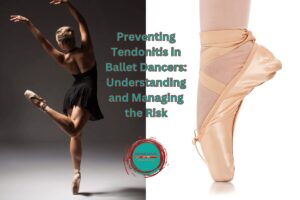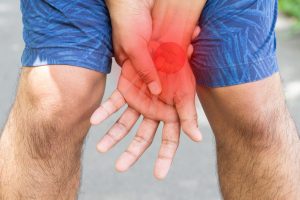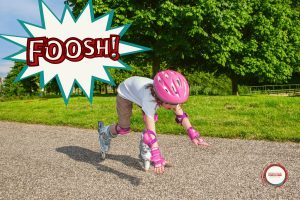
Discover How Physiotherapy Can Make a Difference in Your Child’s Juvenile Idiopathic Arthritis Journey
Welcome to Central Health Physiotherapy’s blog, where we provide expert guidance on managing Juvenile Idiopathic Arthritis (JIA) in children. Our highly specialized paediatric physiotherapist shares valuable expert tips and personalised strategies to help your child overcome pain, increase mobility, and unlock their full potential. Explore evidence-based techniques and comprehensive support to improve your child’s quality of life.
What is Juvenile Idiopathic Arthritis?
Juvenile Idiopathic Arthritis (JIA) is the most common rheumatic condition in children under 16 years old. It describes joint inflammation which lasts more than 6 weeks. To be diagnosed with JIA all other possible conditions must be ruled out.
June always brings Juvenile Idiopathic Arthritis Awareness Week (JIA AW 2022) #SameJIADifferentDay – to show your support, wear purple for JIA.
How Common Is JIA?
There is a yearly incidence of 2-20 per 100,000 population. Three quarters of children diagnosed will first present with symptoms at 2–6 years of age. Any healthcare professional that works with children must be aware of this condition. In particular physiotherapists, GP’s and Orthopaedic Consultants.
What Are the Symptoms of Juvenile Idiopathic Arthritis?
A child with JIA may present with one or more joints which appear swollen (present for more than 6 weeks). The joints will also often appear red and warm and will be tender. Restricted joint range, muscle wasting and/or pain.
In most cases there will be evidence of altered movement as the child attempts to continue with normal function and movement. Children can also complain of feeling very tired. Can often describe blurry vision or dry ‘gritty’ eyes. They can also develop a rash, lose their appetite and have a high temperature.
What Are the Types of JIA?
There are 6 types of juvenile idiopathic arthritis. They are listed below in order of their incidence:
- Oligoarthritis: The most common type. Affects four or fewer joints, most often the larger ones (e.g. knees, elbows, ankles).
- Polyarthritis: Affects around a quarter of JIA sufferers. This affects five joints or more and often in pairs (i.e. both ankles or elbows).
- Systemic: Accounts for around 10% of JIA cases. It affects the whole body, often accompanied by fever and a rash that lasts at least two weeks.
- Psoriatic Arthritis: 5% of cases fall into this category. With this the joint symptoms are accompanied by a skin rash. Can affect one or multiple joints and the rash can precede or come after the joint symptoms.
- Enthesitis Related: Less than 5%. This affects the parts of ligaments and tendons that attach onto the bone.
- Undifferentiated: This is where there is obvious inflammation in one or more joints but the symptoms don’t match any of the other types.
What Is the Cause of Juvenile Idiopathic Arthritis?
The disease is considered autoinflammatory rather than autoimmune, as a result of abnormal inflammatory responses. Usually in a genetically susceptible individual triggered by environmental factors. It is worth keeping in mind that environmental triggers such as infection or trauma can precede the disease onset.
So a health care professional must rule out other forms of inflammation, including septic and reactive arthritis. Ascertaining family history is an essential part of the assessment process. However, the definition of the term idiopathic in itself means that the cause of this condition which arises spontaneously is ultimately unknown.
Does Juvenile Idiopathic Arthritis Go Away?
There is unfortunately no cure for JIA. The disease can however go into a remission state which can last months or years. In remission, the disease shows little or no inflammatory activity. When the symptoms return, this is termed a ‘flare’ and again can last days or months, before returning to submission. The earlier a flare can be treated, the better.

What Is the Role of the Physiotherapist in JIA?
The role of physiotherapy is essential in early detection and then the management of JIA.
During assessment the therapist must find out:
- 1 – the cause and duration of the swelling.
- 2 – the presence of stiffness first thing in the morning
- 3 – details of previous episodes of infection/fever.
The physio, as part of the assessment, should undertake a “full joint count”. This ensures they assess all joints to rule out any other joint involvement. A simple blood test to check for ESR and CRP will assist in the diagnosis process as well. An urgent onward referral to a paediatric rheumatologist for further medical management is also appropriate.
Treatment should include:
- 1 – managing pain and swelling
- 2 – maintaining joint function and posture to prevent deformation.
- 3 – reduce long term health effects
- 4 – education and support for the child and family
- 5 – supporting the child and family back to normal life
What Can You Expect From Seeing Us at Central Health Physiotherapy?
- Expert Paediatric Physiotherapist: Benefit from the wealth of knowledge and experience our specialized paediatric physiotherapist brings to the table. With years of experience in managing JIA, our expert understands the unique challenges your child faces and provides valuable insights to optimize their treatment plan.
- Personalised Strategies: Every child with JIA is different, and their treatment should reflect their unique needs and condition. Our paediatric physiotherapist tailors strategies specifically to your child, ensuring that their therapy plan is personalised and maximizes their potential for improved mobility and pain management.
- Improved Mobility and Pain Management: Our goal is to help your child regain mobility and reduce pain associated with JIA. Our expert paediatric physiotherapist employs evidence-based techniques and exercises to enhance joint function, strengthen muscles, and alleviate pain, allowing your child to participate in activities they enjoy and experience a better quality of life.
- Holistic Approach: We understand that JIA affects not only your child’s physical well-being but also their emotional and educational needs. That’s why our approach goes beyond physiotherapy. We provide comprehensive support, including education on managing JIA, emotional support for your child, and guidance on lifestyle adjustments that can contribute to their overall well-being.
- Family-Centered Care: JIA can have a significant impact on the whole family. We believe in supporting not just your child but the entire family unit. Our paediatric physiotherapist works closely with you, offering guidance, resources, and support to help your child return to a normal and fulfilling life. We recognise that a strong support system is crucial for their success.
Experience the benefits of our expert paediatric physiotherapy and help your child thrive. Schedule a consultation with our specialised physiotherapist today to discover how we can make a difference in your child’s journey with JIA. Don’t let JIA hold them back—unlock their full potential now!
You can find more information about JIA on the Arthritis Research website.
You would like to find out more about our paediatric services check out our Paediatric services page.




Comments